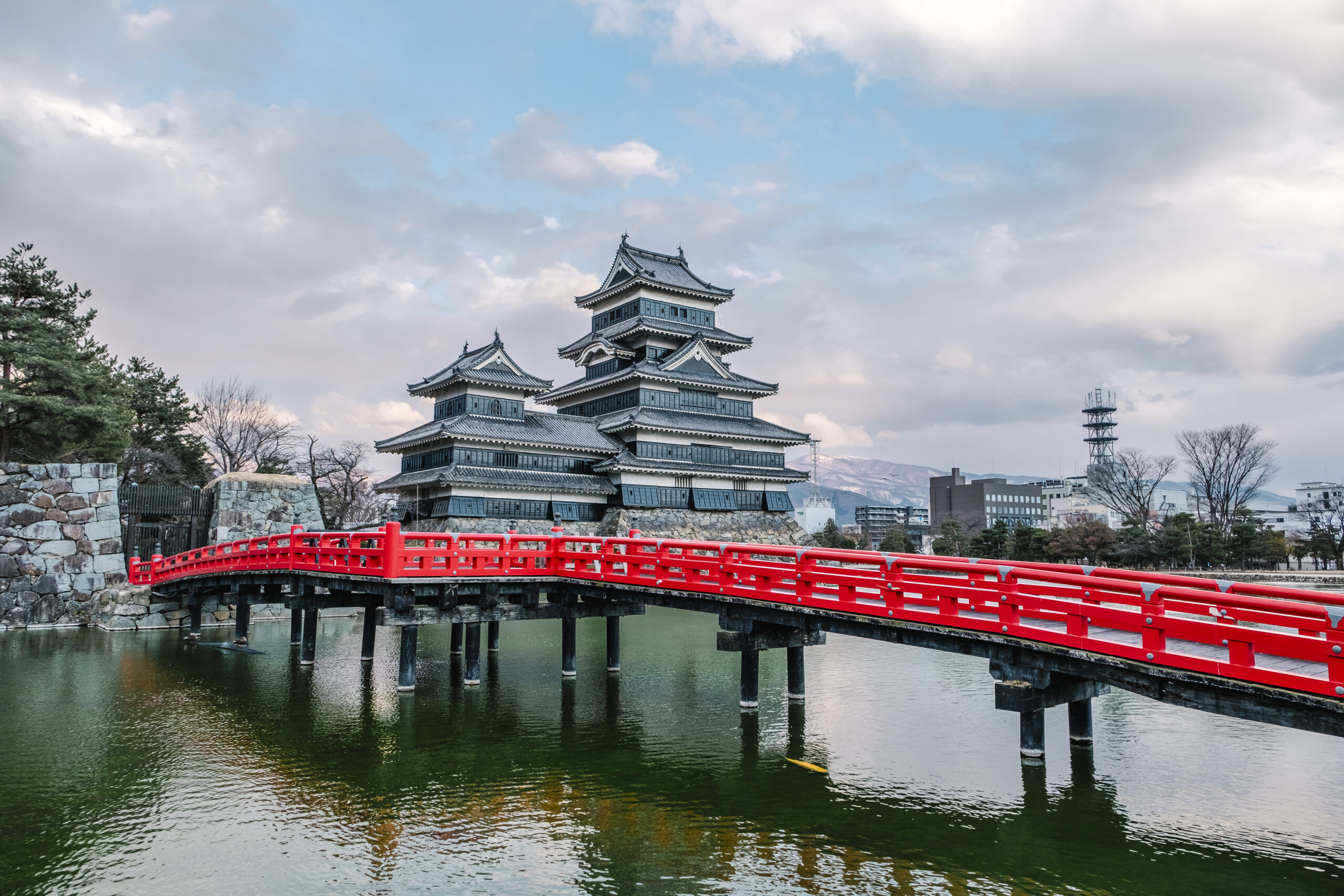The plane touched down in Tokyo just beyond the middle of the night. Outside the window, a sea of unusual kanji glowed towards the moist tarmac, reflecting the sodium lighting in fractured streaks. The hum of the engines died, changed through a sudden, profound silence inside my head. The reality hit like a physical blow: I became by myself. Utterly, absolutely by myself. No protection net. No familiar voice. Just me, an unexpectedly packed suitcase, and a language I couldn’t decipher scribbled on signs pointing towards an unknown town. These weren’t just any forty-eight hours; they had been a crucible that burned away the person I idea I become and cast someone entirely new.
Hour 1-6: The Crushing Weight of Neon Silence
Stepping into Narita Airport felt much less like arrival and more like being ejected into a sensory vacuum purifier set to most. The efficiency became terrifying. Silent queues moved with robotic precision. Announcements crackled in rapid-fire Japanese. My carefully rehearsed “Sumimasen” (Excuse me) died in my throat, changed into a dry croak. I fumbled with the train ticket device, sweat prickling my neck as a line formed silently in the back of me. My brain, normally buzzing with plans and chatter, went blank. Panic, bloodless and slick, started its insidious creep. What turned into I questioning? This wasn’t a journey; it became hubris. The sheer scale of my aloneness pressed down, amplified through the many human beings flowing around me like water around a cussed rock. I became invisible, adrift, and profoundly insignificant. The first night in a tiny Shinjuku tablet lodge wasn’t sleep; it became a claustrophobic vigil, taking note of the muffled breaths of strangers through thin partitions, feeling the metropolis’s massive, indifferent strength vibrate via the ground. The loneliness wasn’t just emotional; it changed into a bodily ache, a hollow

Hour 12: The Humiliation that Became a Lifeline
Hunger ultimately drove me out the next morning. Jet-lagged and trembling, I stumbled right into a tiny ramen bar tucked down an alley. The menu becomes a wall of indecipherable characters. Pointing felt infantile. I mumbled something incoherent. The old chef behind the counter stared, not unkindly, but utterly puzzled. My face burned. Tears pricked my eyes – tears of exhaustion, frustration, and sheer, silly embarrassment. I could not even order meals. This fundamental human function felt like scaling Everest. Then, something shifted. Maybe it was the exhaustion breaking me down. Instead of fleeing, I took a breath. I pointed to the steaming bowl, and the person next to me became devouring. I held up one finger. A hesitant smile touched the chef’s eyes. He nodded vigorously, “Hai! Hai!” A couple of minutes later, a steaming bowl of miso ramen was regarded. It wasn’t what I’d pointed at, but it didn’t matter. That first sip of wealthy, savory broth wasn’t simply nourishment; it was a floodgate opening. The easy act of receiving, of being understood in the maximum fundamental manner, became a lifeline thrown across a considerable cultural chasm. The humiliation softened into humility. I bowed clumsily, “Arigatou gozaimasu.” His answering nod wasn’t just acknowledgment; it became a tiny bridge built.
Hour 18: Lost is a State of Mind (and a Backstreet in Shibuya)
Emboldened by way of ramen, I ventured closer to Shibuya Crossing. The well-known scramble hit me like a wave – a pulsating, chaotic river of humanity. I was swept along, disoriented, my map app vain amidst the towering screens and dizzying lights. Suddenly, I became off the primary drag, plunged right into a labyrinth of slender backstreets. The frantic power dwindled, replaced by way of quiet residential lanes, bicycles propped in opposition to wood fences, the scent of laundry and simmering broth. Panic threatened once more. Lost. Utterly misplaced. But then, an extraordinary calm descended. There was no person to apologize to, no person to electrify, no one to disappoint, however myself. The strain to “perform” evaporated. I stopped preventing the disorientation. I turned into. Lost. Observing. A tiny blue flower pushing through a crack in the pavement. A vintage woman meticulously tending bonsai on a balcony. The complicated pattern of rain stains on a weathered timber door. In the absence of expertise in language, my other senses sharpened. I observed textures, smells, and the rhythm of everyday lifestyles unfolding untouched by the vacationer frenzy meters away. Being actually, profoundly lost wasn’t terrifying anymore; it became freeing. I wasn’t failing; I changed into exploring. I observed my manner returned finally, no longer through technology, but by following the remote roar of the crossing like a homing beacon. The victory wasn’t arriving; it turned into the peace discovered in the detour.

Hour 30: The Gift of Shared Silence
Later that day, aching feet led me to the Meiji Shrine, a sudden oasis of ancient forest in the heart of the city. The air changed, thick with the scent of cedar and damp earth. The city’s roar faded to a distant hum. Near the main hall, I saw people performing the ritual purification—washing their hands and mouth at the temizuya. I watched, hesitant, not wanting to offend. An elderly Japanese man, catching my uncertainty, gestured gently towards the ladles. He didn’t speak English. I didn’t speak Japanese. But his eyes were kind, his movements deliberate. He demonstrated slowly: scoop, pour left hand, pour right hand, pour left hand again, and tip the ladle vertically to clean the handle. I mimicked him, our movements a silent conversation. We stood side-by-side at the water basin, the only sound the splash of water and the rustle of leaves far above. No words were exchanged, yet a profound connection hummed in that shared silence, in the shared respect for a place and a ritual. It was a communion deeper than language. We bowed slightly to each other afterwards. No smile was needed. The understanding was complete. It shattered the illusion that connection requires fluent conversation. Presence, respect, and shared humanity were the universal tongue.
Hour 48: The Alchemy of Alone
As the second night fell, I sat in a tiny izakaya tucked below a railway bridge. The salarymen around me laughed and chattered, a comforting wall of sound. I sipped warm sake, looking at the trains rumble past the window. The crushing loneliness of forty-eight hours prior had long passed. It hadn’t vanished; it had converted. The aloneness had turned out to be a powerful kind of aloneness – an area I inhabited completely, without worry. I hadn’t magically found out Japanese. I nonetheless hopelessly turned around. But something essential had rewired itself:
1. Self-Reliance Forged in Fire: I’d navigated panic, hunger, disorientation, and profound awkwardness on my own. The recognition that I could face the terrifying unknown and not just live to tell the tale, but also discover moments of grace, became modern. My enterprise has become less lonely, stronger.
2. Humility as a Superpower: Stripped of language, fame, and familiarity, I turned into reduced to my most primary human self. This humbling became no longer degrading; it was clarifying. It taught me to take a look at, to pay attention with more than my ears, to ask for help without disgrace, and to realize the tremendous kindness regularly offered in small, wordless gestures.
3. The Deep Well of Resilience: Those forty-eight hours proved my capacity to bear emotional and intellectual strain I by no means imagined. The panic attacks subsided. The tears dried. The disorientation became curiosity. I located a wellspring of resilience I didn’t realize I possessed, genuinely due to the fact I had no choice but to draw from it.
4. Connection Beyond Words: I discovered that a profound human connection does not constantly require shared vocabulary. It can bloom in a shared bowl of ramen, a silent ritual at a water basin, or an affected person’s gesture from a stranger. The international community has become much less divided by language and more united with the aid of shared, silent experiences.
5. The Expansive Freedom of Anonymity: Being in reality unknown, a face in a sea of thousands and thousands, becomes to begin with terrifying. But it has become notably releasing. There was no beyond, no expectations, and no performance required. I ought to actually *be*, have a look at, and exist without the weight of my history or others’ perceptions.

The Unfolding Map:
Stepping onto the plane leaving Tokyo 48 hours later, I wasn’t the same woman who had arrived trembling. The city hadn’t changed; I had. I carried the echo of ramen steam, the fragrance of cedar, the rhythm of Shibuya backstreets, and the profound warmth of silent connection. The loneliness hadn’t killed me; it had carved out a new area inside me – a space for quiet power, deep statement, and radical self-trust.
Moving to a brand new United States became the catalyst, but those first forty-eight hours of raw, unmediated aloneness had been the crucible. They taught me that being lost is not the end of the journey; it is often the most effective way to simply locate yourself. They proved that the human spirit, whilst stripped bare and driven to its perceived limits, does not ruin; it bends, it adapts, and in the end, it discovers a resilience and an ability for connection a ways deeper than it ever imagined. The global failed to sense smaller after that; it felt infinitely large, richer, and more welcoming, exactly because I had found out how to navigate its vastness by myself, one terrifying, exhilarating, transformative step at a time. The greatest journey hadn’t been across the Pacific; it had been inward, sparked via forty-eight hours of being profoundly, superbly, irrevocably alone.







+ There are no comments
Add yours